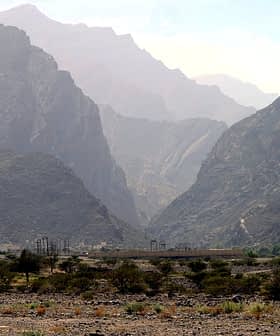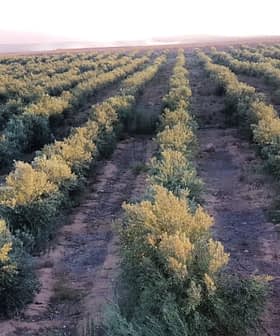Planting of Over 300,000 Olive Trees Underway in Pothohar, Pakistan
Under a five-year plan initiated in 2015, the agriculture department of Pakistan's Punjab province is providing two million olive saplings free of charge to farmers in the Pothohar region.
Under a five-year plan initiated in 2015, the agriculture department of Pakistan’s Punjab province is providing two million olive saplings free of charge to farmers in the Pothohar region. The aim of the Olive Valley Project is to develop the region as an olive-growing region and promote domestic olive oil production.
Pothohar (also often spelled Potohar, Pothwar, Potwar) is a large plateau region in north-eastern Pakistan covering an area of 8,592 square miles. It has been identified as suitable for olive production because of its favorable climate and ideal topography. The proposed planting area covers an area of 15,100 acres, where 2,038,500 olive saplings will eventually be planted under the five-year project running until 2020.
The Barani Agriculture Research Institute (BARI) located in Punjab’s Chakwal district, Pakistan has already planted 337,500 olive trees in the region so far this year, while 48,600 were planted last year. The BARI website reveals that the massive Olive Valley Project is not only providing olive saplings to local farmers, but also technical support on olive grove management and financial support for water resource development and drip irrigation.
The long-term objectives of the project are to produce olive oil for export while creating a sustainable olive oil economy which will also benefit the rural communities of the region. Pakistan presently produces 34 percent of the edible oils it consumes domestically and is forced to spend significant foreign exchange on the import of edible oil to meet domestic demand.
In order to meet this demand, the Punjab government is also working on increasing the production of sunflower oil. Meanwhile, the export of high-quality olive oil could generate significant foreign exchange earnings. The five-year Olive Valley Project is expected to generate revenue of 858 million Pakistani Rupees ($8.2 million) in its ninth year, and a cumulative revenue of 39.1 billion Pakistani Rupees ($373.7 million) over a 25-year period.








